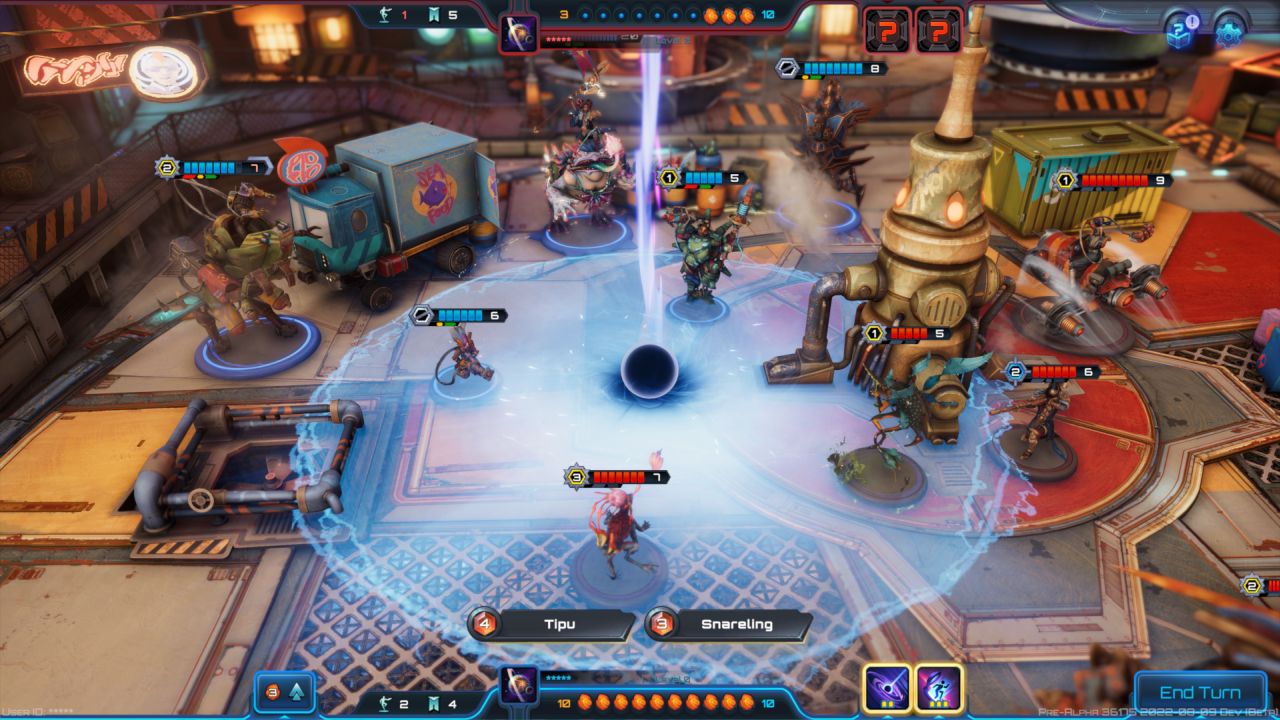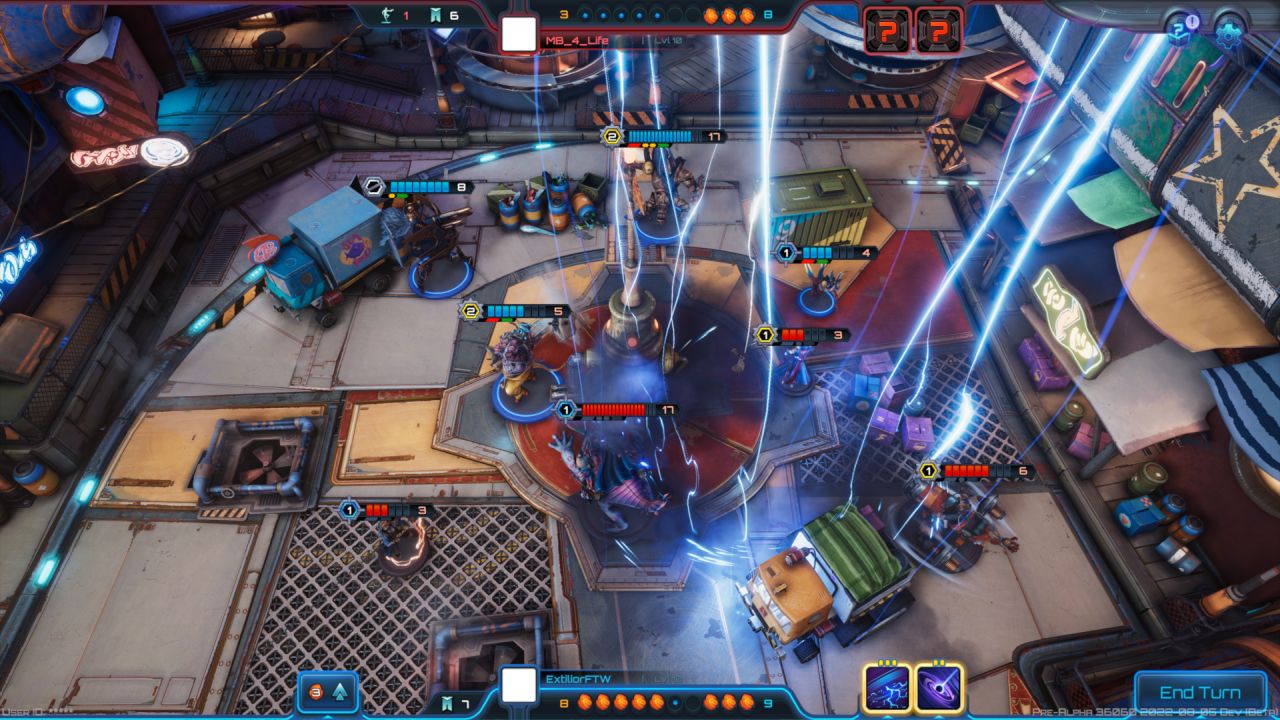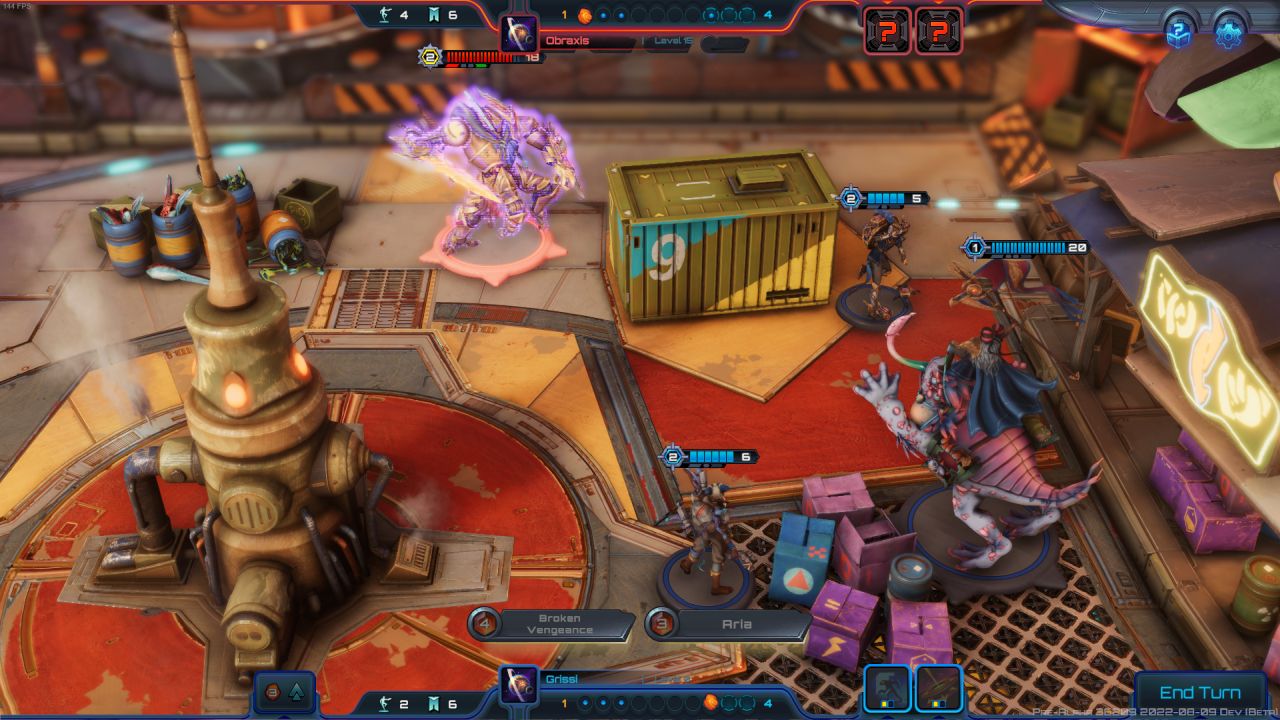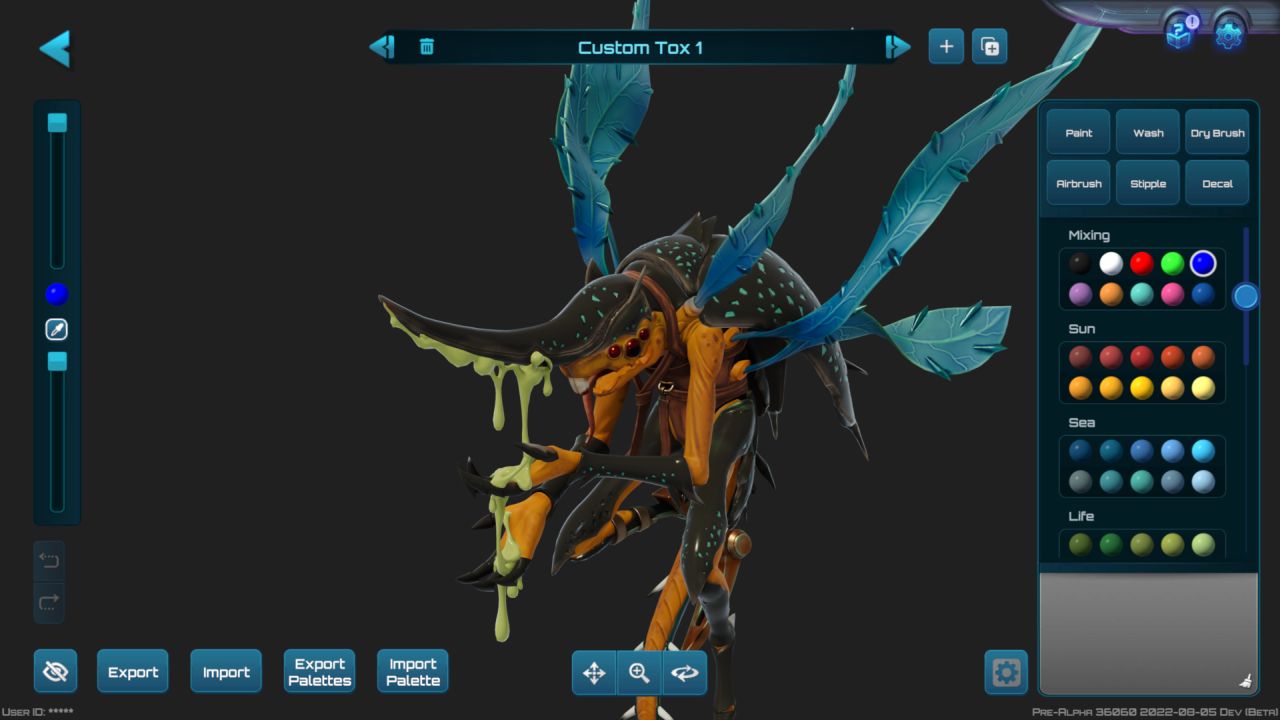Whether you’re new to tabletop strategy or already like bashing miniatures together, the game makes for a perfectly enjoyable time. I just don’t know whether it goes beyond “perfectly enjoyable” into “thrilling”, though, and that may be down to its lack of, well, lots of things. Give it time and it may just evolve into a game of serious depth but right now it’s a bit too miniature to recommend wholeheartedly. At its heart, Moonbreaker is about assembling a team of units and beating other folks’ units. Each team revolves around a leader, the captain, who’s often the most powerful fella on the board. Defeat the enemy’s captain and you win, no matter how many of their units remain. As someone new to tabletop, I appreciate a simple win-condition that streamlines proceedings and gives matches a singular focus. Without being too reductive, the game’s matches are highly reminiscent of the skirmishes you’d find in a game like XCOM. Information is very clearly presented in a similar way, with mouse drags showing hit-rate percentages and area-of-effect attacks highlighting targets in flashes of red. Stick a melee unit next to an enemy and you’ll clearly see whether they’re in range to attack or not, thanks to a nice radius pool. While there are only three captains, and not a great deal of other units knocking around to support them, the characters are an interesting bunch who can create some cool compositions and initiate some sweet synergies. One of my faves is a large mecha-octopous that generates an aura around itself allowing allies to move multiple times in one turn, so long as they stay within its reach. Other units have grapple hooks that can pull friends or foes to their position. They all clearly occupy that tank, damage-dealer, or support role, so you’re never lost as to a unit’s purpose on the battlefield. Having said all this, you won’t find any bonuses for flanking your targets here - but you will find clever positioning rewarded in a more basic manner like reducing your whiff-chance or taking better advantage of a nearby friendly’s buff. Moonbreaker fully embraces the “easy to pick up, hard to master” philosophy because it’s concerned with cracking on, not creating complexity out of a million different sub-systems. If XCOM is a GCSE, Moonbreaker is GCSE Bitesize, condensing turn-based battles into a streamlined format that won’t cost you more than, say, 30 minutes of your time. First off, moving your units doesn’t cost a dime, so you’re free to position each turn as you see fit. Then you’ve got a points system that ramps up with each turn. These points are called “Cinder” and you’ll spend them on unit abilities, reinforcements, and practically everything else. At the start of the match you’ll only have a couple to spend, with an increase of one per turn. Naturally, this means that it doesn’t take long for your Cinder total to rack up, with plenty of it to spend on knocking the enemy squad senseless. You can also choose to bank any unused Cinder, which could grant you enough to make an expensive play next turn if you’ve timed it well. As mentioned briefly above, you might then be able to call in reinforcements, which is like adding a unit to your hand, or even spend your excess Cinder on chucking them onto the battlefield all in the same turn. If this sounds a bit too snowbally, don’t worry, because fresh units who’ve been plopped onto the battlefield mid-turn can’t do anything unless you cleanse their shackles with a leader ability. Thing is, you’re largely on your own in figuring out the ins and outs of the game’s fundamentals. The tutorial explains the absolute basics, yet leaves you to figure out practically everything else. This is where Moonbreaker’s current early access foundations show that they’re not fully formed just yet, and it spreads a little the game’s three modes. One is an offline mode where you can set up a custom match against a friend or AI, another is online and matchmakes you against a real player, and Cargo Run is a bit like Hearthstone’s Arenas mode, where you take on an increasingly difficult succession of procedurally generated scenarios with a pre-determined team of units. Matchmaking for an online opponent is a breeze, yet you’ll wish you could mess about with more than three leaders and dig into hundreds of units, not just twenty odd (it might not be 20, but it certainly feels it). While Cargo Run is a neat challenge that lets you try out a bunch of units you might not own in a variety of scenarios, those scenarios are still limited to a few bosses and maps. And sure, it’s a decent way of earning one of a few currencies to buy things in the in-game store like Booster packs (which grant you a random chance of earning a handful of new units). Except it won’t take you long to earn all the units in the game. It’s a good thing in one respect, as it’s not a malicious grind through millions of loot boxes, but also means that experimenting with a roster seems a bit lack-lustre when there’s not much choice in the first place. On the other hand, you could argue that the Booster-conomy may only get worse as the devs start pouring new units into the game. You’re forever bouncing between “This is nice” and “If only there was more, maybe then it would click.” As for customising the look your squad, there’s an entire section of the game dedicated to painting your miniatures. You can select different brushes, sizes, and even slap together different colour mixes for that perfect glow. If you’re good at Microsoft Paint, you will thrive here. The figures all come furnished in a default coat anyway, so there’s no need to actually delve into this side of the game if you’re not fussed, and while I don’t gain any pleasure from painting miniatures, I understand the appeal. I think it’s neat that there’s a slice of the game which lets you do it, all without the fuss of staining real life clothing! Just don’t expect it to rustle up any interest if you were never a fan of painting things to begin with – it’s built with fans in mind. Moonbreaker really does seem to capture the tabletop experience in digital form, making for bite-sized turn-based battles that are a lot of fun. It’s just hard to recommend in its early access state, not because it’s a buggy mess (far from it), but more in the sense of units and leaders and maps; it needs some booster packs of its own, I reckon. But once – and if – it gets a steady stream of stuff, I don’t see why it can’t evolve into a simple, yet surprisingly complex strategy battler. Fingers crossed eh.



